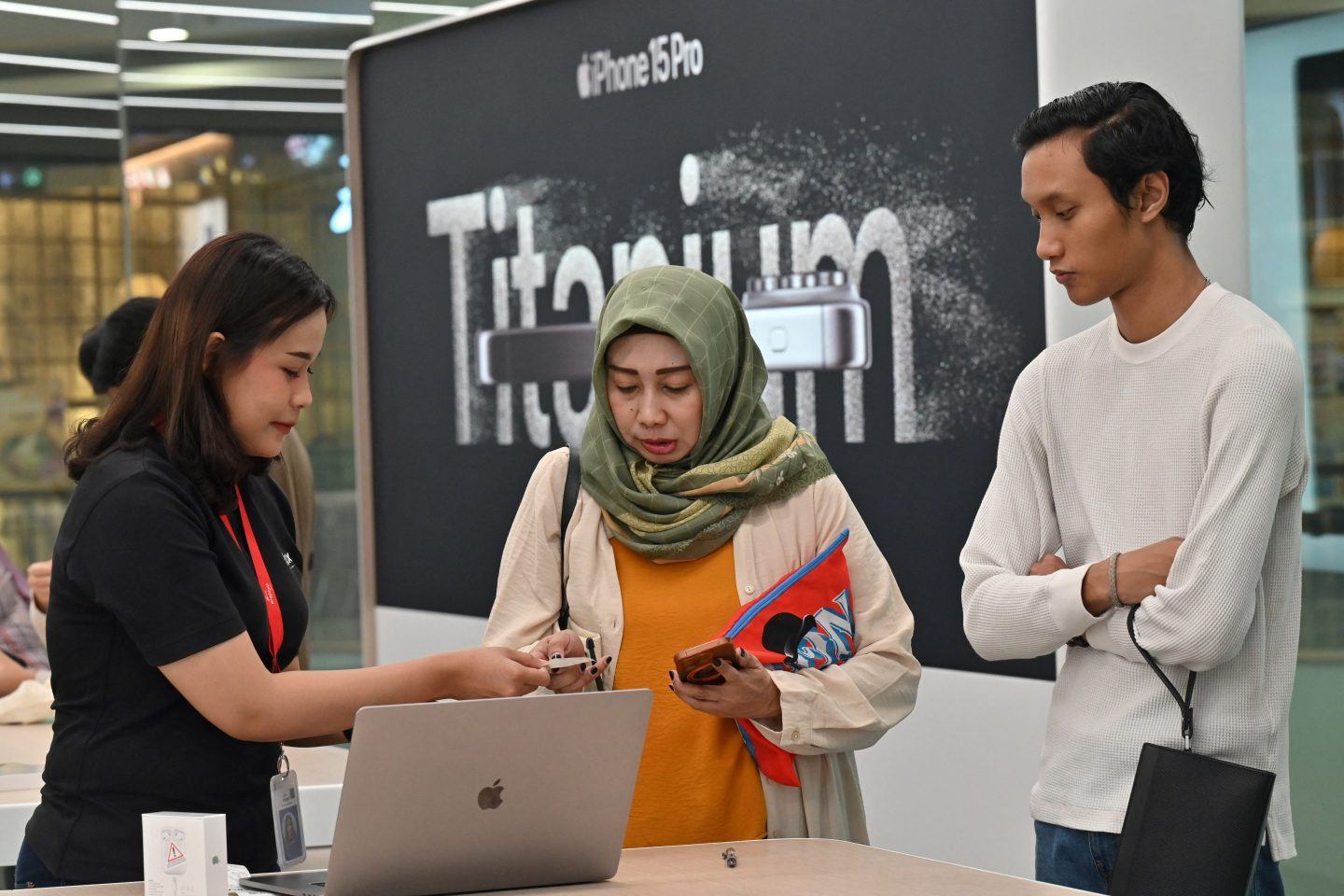From a cost-benefit perspective, Indonesia's tough attitude towards foreign investment is beginning to show results.
Apple is also fighting hard.
In order to get Indonesia to abandon the existing iPhone 16 sales ban, on November 19, news reported that Apple had agreed to increase Indonesia's investment scale tenfold, significantly increasing the original US$10 million to US$100 million.From a cost-benefit perspective, Indonesia's tough attitude towards foreign investment is beginning to show results.
The story took place last month.On October 31, the Indonesian Ministry of Industry suddenly issued a ban on Apple's new iPhone 16 model.Indonesia's Ministry of Industry said that all smartphones sold in China must contain at least 40% of locally manufactured components, but the iPhone 16 does not meet this standard.
In addition, the Indonesian government has also accused Apple of failing to fulfill its investment commitments in the country.Apple originally promised to invest 1.71 trillion Indonesian rupiah (approximately US$122.1 million) in Indonesia, but now Apple has only invested 1.6 trillion Indonesian rupiah (approximately US$101.8 million) by establishing a developer academy there. This is inconsistent with the Indonesian government's requirements.Moreover, college investment has limited contribution to promoting employment.
Indonesia is an important market for Apple in Southeast Asia.It is estimated that if it had not been banned, the monthly sales of iPhone16 in the Indonesian market would reach about 50,000 units. Based on the average selling price of each mobile phone of 10 million Indonesian rupiah (approximately US$680), monthly sales could reach 500 billion Indonesian rupiah (approximately US$34 million).Compared with the huge profits, Apple's second investment plan of US$10 million is really a drop in the bucket.
Now, Apple is finally determined to get sales licenses in Indonesia.After proposing an investment plan of US$100 million, the Indonesian Ministry of Industry asked senior Apple managers to meet with Agus Gumiwang Kartasasmita, Minister of Industry and Information Technology.Interestingly, after Apple executives flew to Jakarta in a hurry, the Minister of Industry temporarily shelved the meeting on the grounds that they were away, so the executives had to submit investment plans with the Director-General of the Ministry of Industry first.As of press time, neither Apple nor the Indonesian Ministry of Industry had responded to the incident.
Although Indonesia's tough attitude towards foreign investment has hit the business environment, it can indeed create benefits for local industries and employment.During the administration of former Indonesian President Joko Widodo, he also tried a similar strategy.He banned ByteDance's TikTok last year to protect his local retail industry from the impact of a large number of cheap e-commerce companies.In the end, TikTok had to invest US$1.5 billion in a joint venture with Tokopedia, the group's e-commerce arm in Indonesia, to share the fruits of "common development."
Now, in addition to the iPhone 16, Indonesia has also banned the sale of Alphabet's Google Pixel phones for the same reason that "mobile phones fail to contain at least 40% of locally manufactured parts."The Indonesian government said that unless the Pixel phone can obtain local content certification, the phone cannot continue to be sold in Indonesia.
Now, after Apple spends money to "calm down", the pressure is clearly on Google's side.

